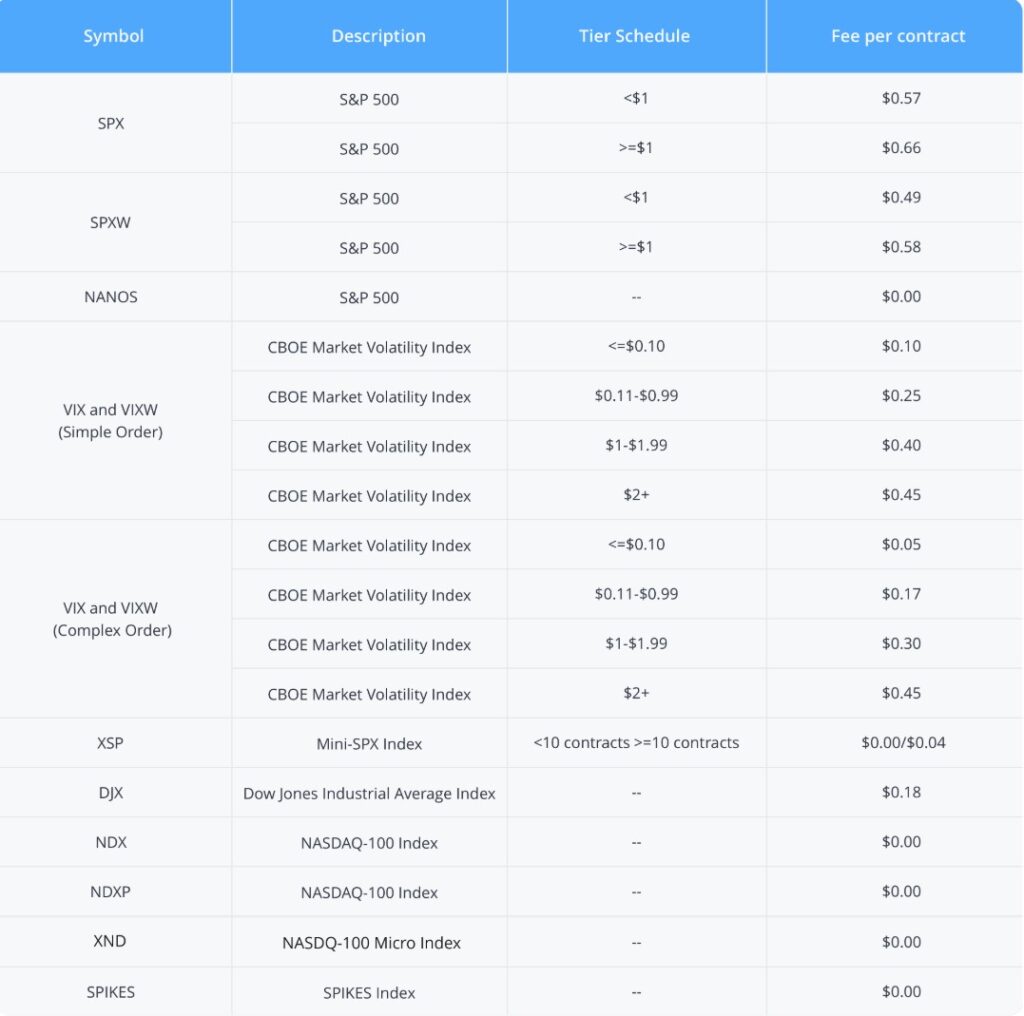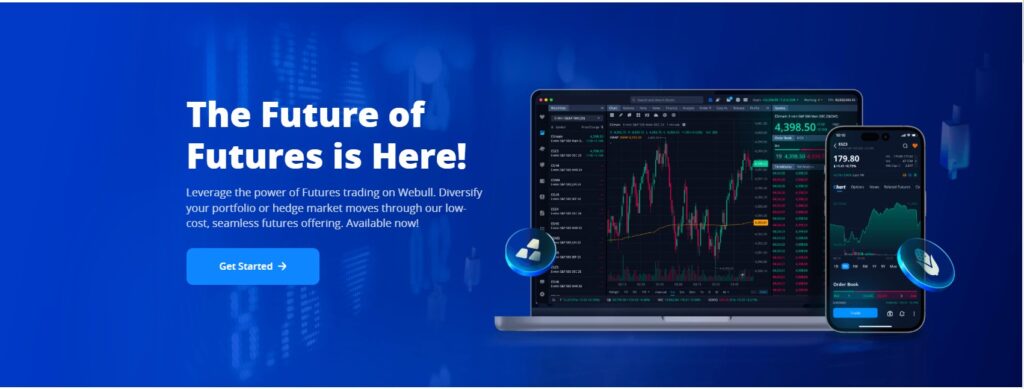There are a number of digital trading platforms that claim to be commission free. Commissions are a kind of fee, but not all fees are commission.
When you’re someone who’s considering Webull as a trading platform, you could be wondering the identical thing many traders ask:
Does Webull charge fees?
The reply isn’t as easy or yes or no. Webull does offer commission-free trading, there are fees for some activities.
It’s for that reason that it’s so crucial to know Webull’s fee structure in case you’re a cost-conscious trader.
Webull charges fees for certain activities in your brokerage account, including some trading fees. There are also options trading fees, futures fees, and withdrawal charges.
On this overview of fees, we’ll explain exactly what they charge and when, so that you’ll have the opportunity to make an informed decision about whether trading on Webull is true for you.
Webull Trading Fees: What You Have to Know
We’ll start with Webull trading fees. One among the mistakes that latest traders make is assuming that when a platform doesn’t charge commissions it means there aren’t any fees.
Is Webull Free?
There’s a difference between a commission-free platform and a free brokerage account. Webull doesn’t charge commissions for many trades, but it surely does charge fees.
Short answer: No, Webull isn’t free.
It’s a low-cost trading platform. When you’re mostly trading stocks and ETFs, you possibly can expect:
- No commission
- No trading fees
- Regulatory and exchange fees
That last item is very important to know. Webull is a registered broker-dealer. Meaning it’s regulated by the Securities & Exchange Commission (SEC) and a member of FINRA. Each charge regulatory fees.
As well as, there could also be fees charged by certain exchanges. Webull doesn’t charge a fee for stocks and ETFs traded on US-based exchanges.
How Much Does Webull Charge Per Trade?

You is perhaps wondering how much Webull charges for stock and ETF trades. There are three regulatory fees you need to be aware of.
| Charged By | Fee | Rule | |
| Regulatory Transaction Fee | SEC | $0.0000278 * Total $ Trade Amount; minimum $0.01 | Sells Only |
| Regulatory Fee | FINRA | $0.000166 * Total $ Trade Amount; minimum $0.01 – maximum $8.30 per trade | Sells Only |
| CAT Regulatory Fee | Webull | $0.000040 * Total Trade Volume | Buys & Sells |
You’ll notice that these fees are all quite low. For a $1,000 trade, you’d pay $0.0278 to the SEC, $0.166 to FINRA, and $0.04 to Webull for a complete of just $0.2338. That’s lower than 1 / 4 for $1,000 value of trades.
Webull Options Fees: Costs for Day Traders & Options Traders
Day trading and options are two of the more advanced trading features on Webull. Here’s what you’ll want to know in regards to the costs.
Does Webull Charge Fees for Day Trading?
Day trading stocks comes with some risks (read: WEBULL DAY TRADING), but it surely doesn’t include higher fees on Webull. The identical three fees we outlined within the previous section are charged on all day trades.
One thing that you simply’ll need to recollect is that there are strict rules for day trading. You possibly can day trade as much as you would like with a money account. When you use a margin account, you’ll need a minimum of $25,000 in your account, otherwise you could only execute three day trades in any rolling five-business-day period. That is often called the Pattern Day Trading (PDT) rule.
The opposite consideration is the difference between settled and unsettled funds. Once you sell a stock, it could take several days for it to be settled by the SEC. When you make too many trades with unsettled funds, Webull may penalize you.
Breakdown of Webull Options Fees
Trading options on Webull is a more complex undertaking than trading stocks or ETFs. Along with regulatory fees, you’ll also must pay exercise/project fees. Here’s how Webull options fees break down.
| Charged By | Fee | Rule | |
| Regulatory Transaction Fee | SEC | $0.0000278 * Total $ Trade Amount; minimum $0.01 | Sells Only |
| Trading Activity Fee | FINRA | $0.00279 * No. of Contracts; minimum $0.01 | Sells Only |
| Options Regulatory Fee | Options Exchanges | $0.02675 * No. of Contracts | Buys & Sells |
| Clearing Fee | Options Clearing Corp. (OCC) | $0.025 * No. of Contracts | Buys & Sells |
| CAT Regulatory Fee | Webull | $0.0046 * No. of Contracts | Buys & Sells |
As you possibly can see, there are more fees and in some cases, they’re higher than they’re for stocks. For instance, the FINRA regulatory fee is higher and there’s no maximum.
The fees for index options are way more complex. Webull may charge a fee of $0.55 per trade. Here’s a partial screenshot to indicate you ways complex these fees will be.
When you need a full breakdown of Webull Options take a look at our original article: WEBULL OPTIONS REVIEW

You possibly can view the whole table, which incorporates exchange fees and rather more, on Webull’s pricing page.
Pro Tip:
Get 20 free fractional shares on Webull whenever you deposit $500 or more today!
Webull Futures Fees: What Futures Traders Should Expect

Webull offers its users access to futures trading through its exchange partners. Webull futures fees are broken down like this.
| Type | Exchange Partner | Charged By | Fee |
| All Regular Future Outright | CME Group | Webull | $1.25 per contract |
| All Mini Outright Futures | CME Group | Webull | $0.70 per contract |
| All Micro Outright Futures | CME Group | Webull | $0.25 per contract |
| Cryptocurrency Futures | CME Group | Webull | $0.50 per contract |
| Standard Crypto Futures | Coinbase Derivatives | Webull | $0.50 per contract |
| Nano Crypto Futures | Coinbase Derivatives | Webull | $0.13 per contract |
Additional fees might also apply, and that is where it may get confusing. Exchange, clearing, and regulatory fees will not be included and Webull doesn’t specify them on their pricing page.
Webull Commission Fee: Where Costs May Apply
Along with the fees we’ve already reviewed, there are a couple of other instances when you could pay a commission when trading on Webull.
Webull doesn’t at all times call these fees commission, but here’s a fast breakdown of what you possibly can expect.
- Short-selling fees: These mostly consist of hard-to-borrow or HTB fees. Calculating HTB rates includes making multiple calculations, including:
- Per-share collateral amount: Previous Closing Price * Current Industry Convention Rate
- Trade value: Per-Share Collateral Amount * Shares Sold
- Annual HTB fee: Trade Value * Annual HTB Rate (currently 6%)
- Day by day HTB fee: Annual HTB Fee / 360
- Margin trading fees: Once you engage in margin on Webull, you’ll pay a percentage of your margin account as interest. That percentage starts at 8.74% for margin accounts with balances below $25,000. They tier down and should be as little as 4.74% for accounts with balances of $3 million or more.
- Exchange fees for specialised markets: When you engage in trading on any specialized exchange, then remember that there could also be exchange fees that aren’t listed on Webull’s website.
Mainly, whenever you engage in margin or short-selling, you might be paying interest on either borrowed funds or borrowed shares.
Pro Tip:
Get 20 free fractional shares on Webull whenever you deposit $500 or more today!
Webull Withdrawal Fees & Transfer Fees: What to Expect
Any time you withdraw money from Webull or transfer your holdings from Webull to a different broker, there are fees involved.
Webull Deposit and Withdrawal Fees
| Motion | Region | Charged By | Fee |
| Debit Card Deposit | US Debit Card | Webull | $0.00 |
| Debit Card WIthdrawal | US Debit Card | Webull | 1.75% of withdrawal amount |
| ACH Deposit | US Bank Account | Webull | $0.00 |
| ACH Withdrawal | US Bank Account | Webull | $0.00 |
| Wire Transfer Deposit | US Bank Account | Apex (Clearing Firm) | $8.00 per deposit |
| Wire Transfer Withdrawal | US Bank Account | Apex | $25.00 per withdrawal |
| Wire Transfer Deposit | Non-US Bank Account | Apex | $12.50 per deposit |
| Wire Transfer WIthdrawal | Non-US Bank Account | Apex | $45.00 per withdrawal |
Asset Transfer Fees
The opposite kind of transfer fee you’ll need to pay attention to is the ACAT transfer fee, which shall be charged within the event you select to transfer assets out of Webull.
The ACAT fee is charged by Apex and is $75 per transfer. That’s the industry standard, so don’t go to a different trading platform expecting a lower fee.
Pro Tip:
Get 20 free fractional shares on Webull whenever you deposit $500 or more today!
Hidden Fees and Regulatory Charges on Webull

We’ve already covered regulatory charges from SEC and FINRA, but here’s just a little more details about what to anticipate and the way these fees work.
SEC and FINRA fees are charged to Webull, and Webull passes those costs on to users. The fees are low, as we’ve already told you.
Margin rates of interest are charged whenever you borrow funds to trade on margin. Margin fees are set by the lender and vary by amount. You possibly can view Webull’s rate table here.
The identical is true of short-selling fees, that are charged whenever you trade borrowed stocks.
Webull says its fees are fully transparent and disclosed. That said, they will be complicated and there are a couple of holes in the data on their website. For instance, they don’t specify what the regulatory fees are for futures trading.
Meaning it’s commonplace for users to be surprised once they see the whole they’re paying, especially once they’re trading on margin.
Our suggestion to you is that you simply at all times review the fees before completing a trade.
Is Webull Price It? Final Thoughts on Webull Fees
Is Webull value it? It’s a vital query to ask because each platform has its own pros and cons.
Our tackle Webull is that it’s probably the most cost-effective platforms for traders. When you’re just getting began in your investing journey, you could find that Webull’s fees make it possible so that you can construct a portfolio quickly and at a low price.
Remember, Webull charges no commission on stocks, ETFs, or options. When you begin with stocks and ETFs inside prolonged hours, you’ll pay only minimal regulatory fees. Meaning you retain more of your money in your portfolio, and that’s a great thing for you and your financial goals!
Bear in mind that there are regulatory fees, and in case you determine to trade on margin, margin rates can translate to a big percentage of every trade and total trading activity fee.
You must also remember the withdrawal costs to be certain that you’re not surprised by those after you make a sale.
Conclusion & Next Steps
The underside line about Webull fees is that this can be a company that strives to maintain trading fees low. They make their money on more complex trades, including margin trading and futures. When you stick with straightforward investment decisions, then your fees shall be low to the closest dollar.
In other words, Webull’s fees are minimal in comparison to other platforms, and that makes it a great selection for beginners and advanced traders alike.